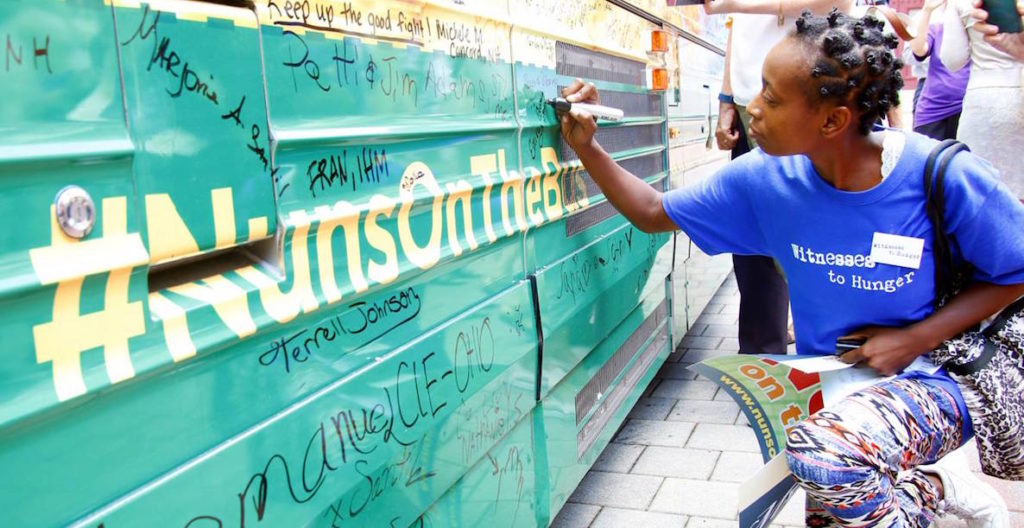For children growing up hungry, the idea that they could do anything to change their circumstances—to make a difference—is often a pipe dream. That is in part because the experience of hunger, and the poverty that goes with it, is often invisible to the rest of us.
But local research and advocacy group Witnesses To Hunger, part of Drexel University’s Center for Hunger-Free Communities, wants to change that. On Saturday, it’s hosting its Second Annual Youth Forum, a display of photographs taken by and of young people experiencing hunger in Philly, as well as a community conversation about the changes they hope to see in their lives.
The event will be held at EAT Café, a pay-what-you-can restaurant in Powelton Village that is also part of Hunger-Free Communities.
“These kids are concerned about litter and trash in their communities, homelessness, drugs, and re-gentrification,” says Sherita Mouzon, the event’s organizer. “Kids have a voice and they need to be heard.”
Like the youth in the project, Mouzon, a founding member of Witnesses to Hunger, has lived in poverty for most of her life. Growing up in North Philadelphia, she remembers the wall of her childhood home covered in mildew, and often going hungry because her family lived hand-to-mouth. Today, she says, the situation is the same if not worse for today’s young people
“It’s up to local organizations like ours to start addressing these issues to start bringing down those stereotypes and start talking about the subject that people do not want to talk about,” she says.
![]()
Drexel’s Center for Hunger-Free Communities, a local research, service, advocacy and policy center, was founded in 2004. Over the years, the center and its staff have helped direct and advise several different community-based projects,like the Children’s HealthWatch, a surveillance study that monitors the health and well-being of very young children under the age of four, and The Building Wealth and Health Network, which is a financial advising network that help the parents and caregivers of young children to increase their income and savings.
Witnesses To Hunger started in Philadelphia in 2008 to provide a means of research and advocacy for the local mothers and caregivers who wanted to do better for their young children. It was a way to sidestep the perennial problem facing this population: Too often, the policies that dictate their lives—like food stamps and welfare—are created without the participation of the people who are most affected. To help them have a say, Witnesses provides women with cameras, so they can document their lives. The photos and videos chronicled also on a blog, then act as living testimonies of their poverty and the looming trauma that it brings. The participants have also testified at Congressional hearings, told their stories to local and state officials, and spread the word at events, forums and exhibits—including at the African American Museum.


